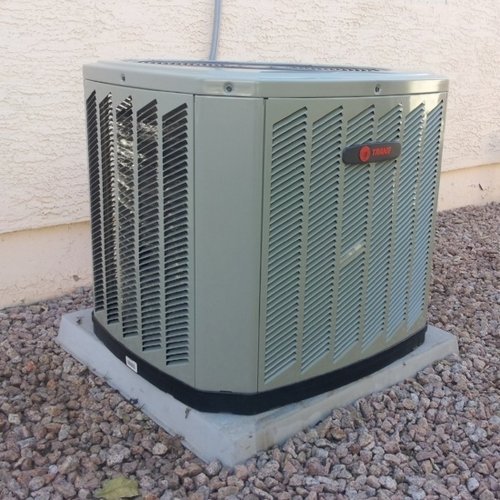Signs It's Time To Replace Your HVAC
As the temperature keeps rising outside, HVAC units (or Heating, Ventilation, and Air Conditioning Unit) will soon be kicking into overdrive. This can cause a considerable strain on your electric bill. But, what are the signs that it’s time to replace it? After all, when it’s 115F, no one wants to be stuck with a broken HVAC. There comes a point when it’s time to do an assessment of the unit to determine if it might need to be replaced. Here are some factors to take into consideration:
Age of the unit
Most units are meant to last approximately ten to fifteen years. Finding the age of the unit can be as simple as checking the owner’s manual that should be included with the house. The home should have also had a recent home inspection that would offer those details as well. If the unit is nearing the ten-year mark it’s time to research new ones.
The electric bill
When the homeowner’s electric bill has continued to increase without the addition of other appliances or fixtures in the house, the most likely culprit is an aging HVAC. An inefficient HVAC will require more energy to run and an HVAC costs the consumer more than any other appliance in the home. Replacing the unit could drop the energy bill down by 25-30% or even more depending on the unit. That amount can help offset the price of replacement substantially. Even if the unit is newer, it could benefit greatly from a Smart Thermostat. Your electrician can install one and the savings will pay for the service call in a short time.
Frequent repairs
The homeowner who has the HVAC service and repair company repair on their speed dial has a problem. While it is a good practice to have the name and number of a good quality professional easily at reach, it’s not typical to need them frequently. It may be time to ask what they would suggest in a new unit if the old one is frequently breaking down. The amount spent on repairs could also offset the cost of a new unit.
Cooling problems
Another indicator of the need for replacement is if the temperature inside does not seem to be dropping even when the unit is constantly running. While a ceiling fan may help, a good HVAC unit shouldn't fail to cool the house or cool it unevenly.
Noises
Lastly, thumping, whirring or other odd noises coming from the unit are a concern that the unit is nearing its end. Newer units are quieter, more efficient and you may not even hear it running.
Replacing your HVAC unit can actually lower your electric bill significantly enough to pay for the cost of the new one over time. Not only that, but your home will be more comfortable, you'll have fewer (if any) repair bills, and the unit will be quieter.


